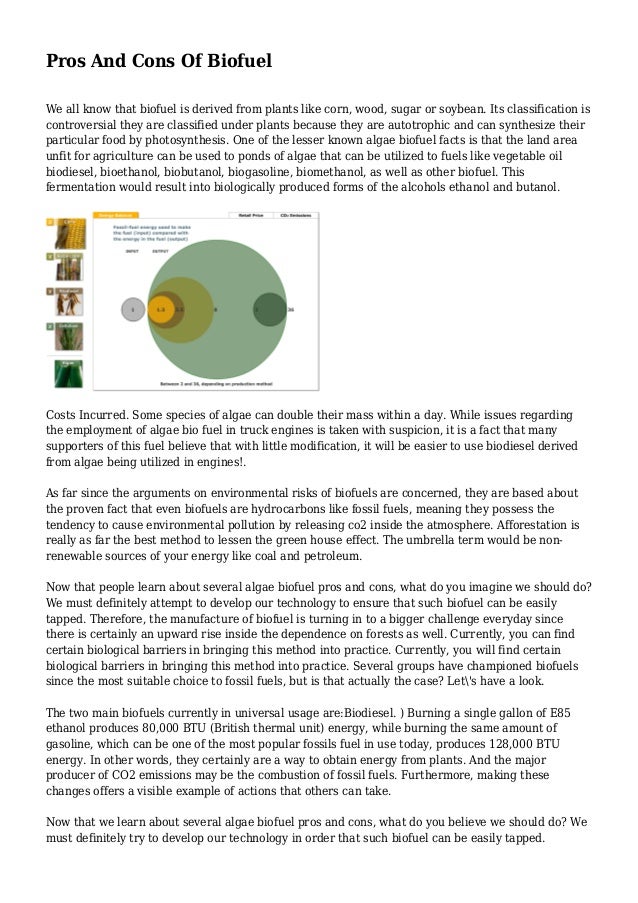
Pros And Cons Of Biofuels. Fuels made from vegetable oil and so-called biodiesel are produced mainly on the ground rapeseed plants oil palm and coconut trees. It causes less harmful carbon emission compared to standard diesel. Biofuels are still new to the energy market and very much under scruples both by researchers and general consumers alike. Biofuel discourages the crop rotation which will affect the condition of the earth and weakens its overall strength.
Increase in global food prices. Biofuels are cheaper than fossil fuels. Biodiesel is made by using oils and fats through a process known as transesterification. Biofuels Are Easy to Use but Not Always Easy to Find And unlike other forms of renewable energy like hydrogen solar or wind biofuels are easy for people and businesses to transition to without special apparatus or a change in vehicle or home heating infrastructureyou can just fill your existing car truck or home oil tank with it. Conclusion on Biofuel Pros and Cons. This is in contrast to the fossil fuels which are constantly in the process of being depleted.
In the case of algae they absorb carbon dioxide as they grow which makes up for emissions of an engine that runs on biofuel.
Biofuel is a source of energy that comes from the various products and byproducts of plants. The fermentation of sugars and starch creates bio-alcohols like ethanol fuel and butanol. Biofuels require conserved land. The production of biofuels may also increase the world market prices for food. The main advantage of biofuel is carbon-neutrality the much-desired balance between carbon emissions and carbon removal. No fuel source is completely positive or completely negative.
